Having your home burgled is unsettling. Here are some key ways to improve your home security and help burglar-proof your home.
Tips for moving to regional Victoria
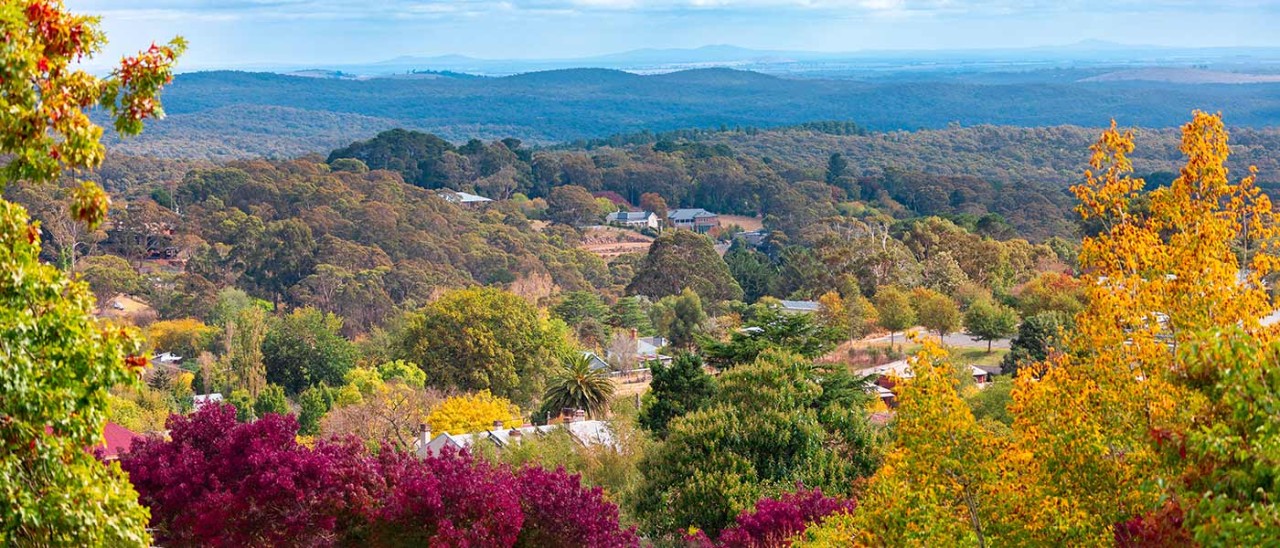
While the idea of a slower pace, fresh country air and more affordable housing might be appealing, shifting from metropolitan Melbourne to regional Victoria comes with its own set of adjustments and considerations. Here's what to think about.
In recent years, more and more Victorians have been packing up their city lives and heading to regional towns across the state.
Popular regional areas for Victorians include Ballarat, Bendigo, the Greater Geelong area, Mildura, Shepparton, Wodonga and Woodend. In fact, the Regional Movers Index found that Australians moving from capital cities to regional areas increased by 10.5 per cent in the first quarter of 2025.
Victorians were the second most likely to migrate regionally after New South Wales residents. Greater Geelong was the top regional local government area migrated to in the year to March 2025, accounting for 9.3 per cent of all net migration to regions across Australia.
If you're considering a move to regional Victoria, there's a lot to think about. From home insurance and maintenance considerations to lifestyle benefits and transport options, here's what you need to know about making a tree change.
Thinking of moving to regional Victoria?
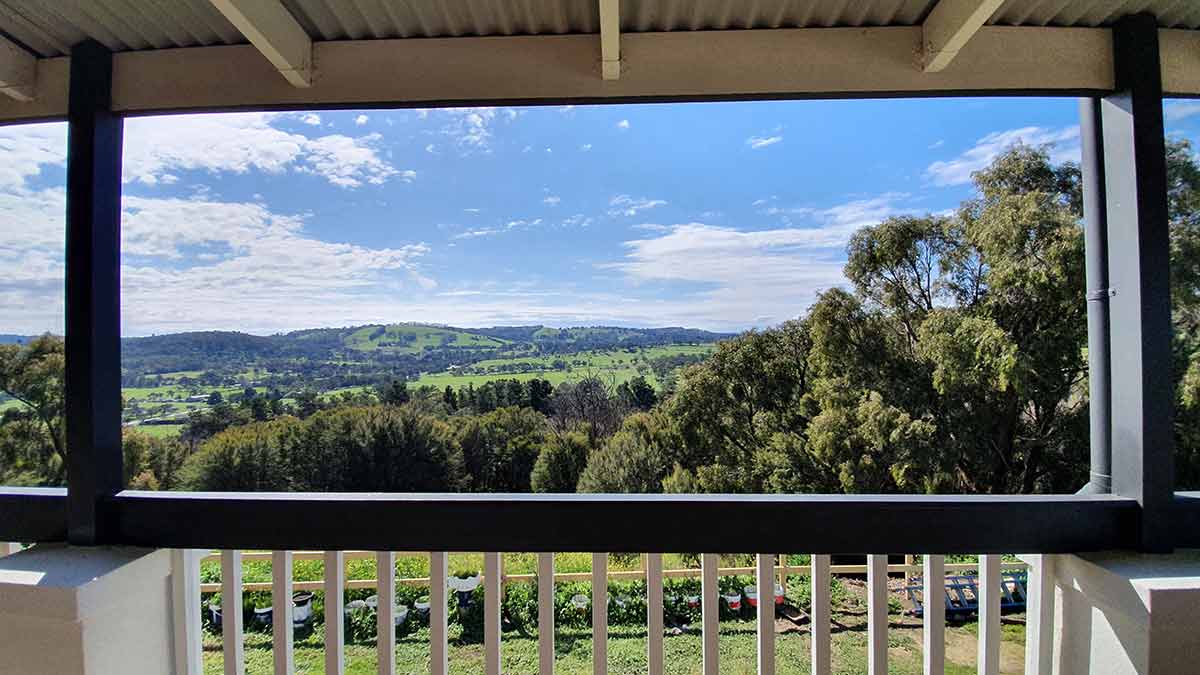
Is it time for a tree-change? Make sure you do your research before making your move.
Moving from Melbourne to regional Victoria
Why more people are moving regionally
The appeal of regional living has grown steadily over the past decade, but it accelerated significantly in recent years.
Affordability remains one of the biggest drivers. The median house price in Melbourne continues to rise, placing pressure on home buyers and families seeking larger homes and blocks. In regional towns such as Ballarat, Bendigo or Geelong, buyers can often secure a larger home with land for the price of a small suburban property in Melbourne. For those seeking lifestyle benefits - space for children to play, room for pets and closer access to nature - this is a major drawcard.
Lifestyle is another strong motivator. Regional Victoria offers wineries in the Yarra Valley, surf beaches along the Great Ocean Road, historic towns in the Goldfields and mountain retreats in the High Country.
Many of these regional towns also have thriving arts scenes, local markets and annual festivals, creating a sense of community that can feel harder to find in big cities. Others are seeking wellness benefits: less traffic, cleaner air and more time spent outdoors.
For some, it's about family and roots. Returning to a hometown, being closer to ageing parents or giving children a quieter upbringing are all common reasons people make the move.
More: Victoria's best country markets
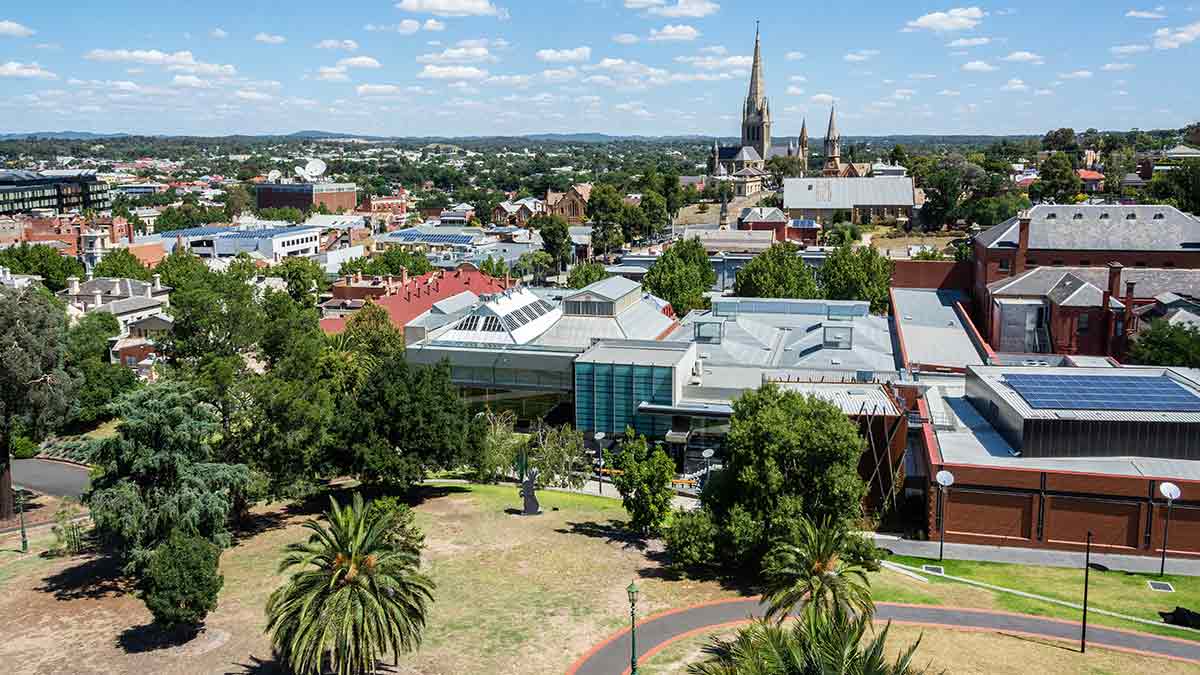
Bendigo is one of Victoria's fastest-growing regional centres. Image: Getty
The pros of living in regional Victoria
Affordability and space
The cost of living is often lower, with larger homes, bigger blocks and the potential for lifestyle properties with acreage. Families can enjoy gardens, sheds or even small hobby farms at a discount to metropolitan Melbourne.
Lifestyle and wellbeing
Whether it's a short drive to a surf break, bushwalking trails at your doorstep or weekends exploring the mountains, regional living can encourage a healthier lifestyle. With less congestion, fewer crowds and shorter commutes, many people find they have more time and energy for hobbies, family and relaxation.
Community connections
Many regional towns have strong community networks. Local sports clubs, schools, markets and festivals often provide more opportunities to get involved and build relationships than in larger cities. This sense of belonging can be particularly appealing for families and retirees.
Work flexibility
Remote work has enabled many to live regionally while keeping city-based jobs. High-speed internet is expanding across Victoria, giving people more choice in where they settle. For those running online businesses or working in creative industries, regional towns can be ideal bases.

Consider whether internet and mobile coverage will meet your needs. Image: Getty
Other considerations of living in regional Victoria
Public transport
Regional towns may have V/Line connections, but public transport is typically less frequent than in Melbourne. Depending on where you live, you may need to rely on a car for things like school runs to grocery shopping. For those who still need to commute to the city, longer drives or train trips may be required.
Housing options
About 90 per cent of homes in regional Victoria are detached dwellings, meaning townhouses, duplexes and apartments are in short supply compared to Melbourne.
The Victorian Government's regional housing targets for the next 30 years include more medium-density housing, but the housing delivery rate will depend on local government zoning and planning processes.
More: Downsizing - what to know about moving into a smaller home
Healthcare and education access
Larger regional centres like Geelong, Ballarat and Bendigo have excellent hospitals and universities, but smaller towns may have more limited access to healthcare specialists, schools or tertiary education options. Families may need to travel for certain services or be prepared for fewer choices.
Amenities and entertainment
While many regional towns have thriving café cultures and arts scenes, they may not match the variety of Melbourne's dining, entertainment or shopping choices. If you thrive on constant activity, you may find regional life quieter.
Be aware of the bushfire risks in regional Victoria
Everyone in Victoria who lives near dense forest, bush, grassland or the coast needs to prepare their property for bushfire. The Country Fire Authority (CFA) urges Victorians to have a better understanding of what actions to take at each level of the Fire Danger Rating system. It's also prudent to have a bushfire survival kit.
A recent CFA survey revealed that 40 per cent of Victorians living in bushfire-prone areas did not have Bushfire Survival Plan to help protect their family. Staying safe includes downloading the VicEmergency app for real-time emergency information and warnings.
It's also important for home owners to avoid being underinsured. If you’re underinsured, you may be at risk of financial loss when an unexpected insurance event occurs and you need to rebuild your home or replace contents.
Find out your property's flood risk
If you are looking at moving to a property on low-lying land, or near creeks or rivers, or major stormwater drains, then you need to be flood ready. The most-at-risk local government areas (LGAs) in regional Victoria, according to Insurance Australia Group Limited (IAG), are Mornington Peninsula, Greater Shepparton, Greater Geelong, Greater Bendigo, Benalla, Wyndham and Campaspe.
Before you move or buy, check with your local floodplain management authority, such as local council or catchment management authority, to see whether your property is at risk of flooding. VicPlan is also a useful tool.
Read more: How to plan and prepare for a flood
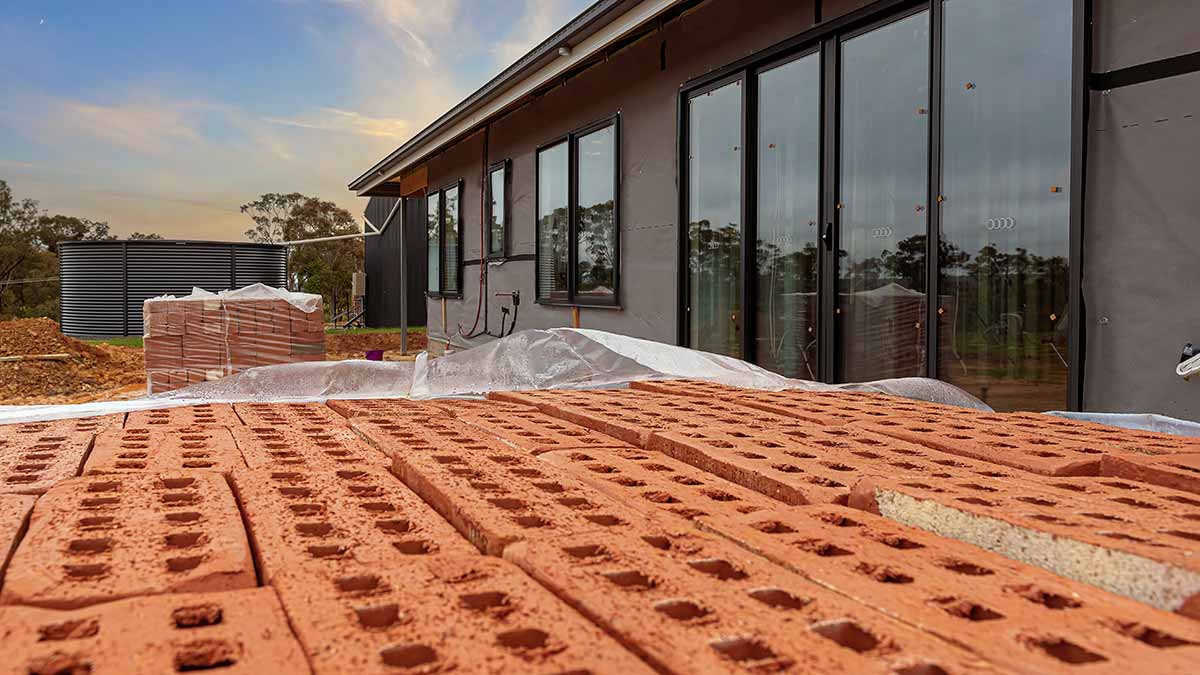
A shortage of skilled trades means it can be more challenging to find bricklayers and carpenters for renovations and new builds in regional Victoria. Image: Getty
Property maintenance
While many may romanticise the idea of a big sprawling property among the gum trees with lots of plum trees, in reality a large property takes a lot of time, patience and work to upkeep. There may be a need to undertake more regular home maintenance to prevent costly repairs, such as gutter cleaning, tree pruning and trimming and pest removal.
RACV Trades* and Emergency Home Assist^ are available in major regional areas such as Greater Geelong, Greater Bendigo and Ballarat.
Infrastructure like internet, mobile coverage and even roads can be also less reliable than in metropolitan areas, especially in smaller towns.
Read more: How regular house maintenance can help with home insurance claims
New builds, renovations and extensions
If the home you're considering needs renovations, or to be extended, consider whether the location means you might experience delays with supplies or difficulty hiring tradespeople.
Planning in regional Victoria differs from council to council, so make sure to do your research before making any decisions.
More: How to plan your home insurance for renovations
Electric vehicle charging infrastructure
If you own an electric vehicle or you're considering buying one, you'll want to know where to find convenient, reliable and accessible charging stations in regional Victoria. Currently there are fewer electric car charging stations in regional Victoria compared to Melbourne, although the number is growing.
Charging your EV at home is usually the most convenient way. Aside from free destination chargers, it’s often the most cost-effective method - especially if the regional property has solar panels and batteries.
Select EV chargers are also positioned along popular driving routes throughout regional Victoria, such as the Great Ocean Road. These stations usually offer fast or ultra-rapid DC charging to get you back on the road quickly.
To find nearby electric vehicle charging stations, download the RACV App, and enter your location and select the plug type you need.
More: Research and compare different electric vehicle models
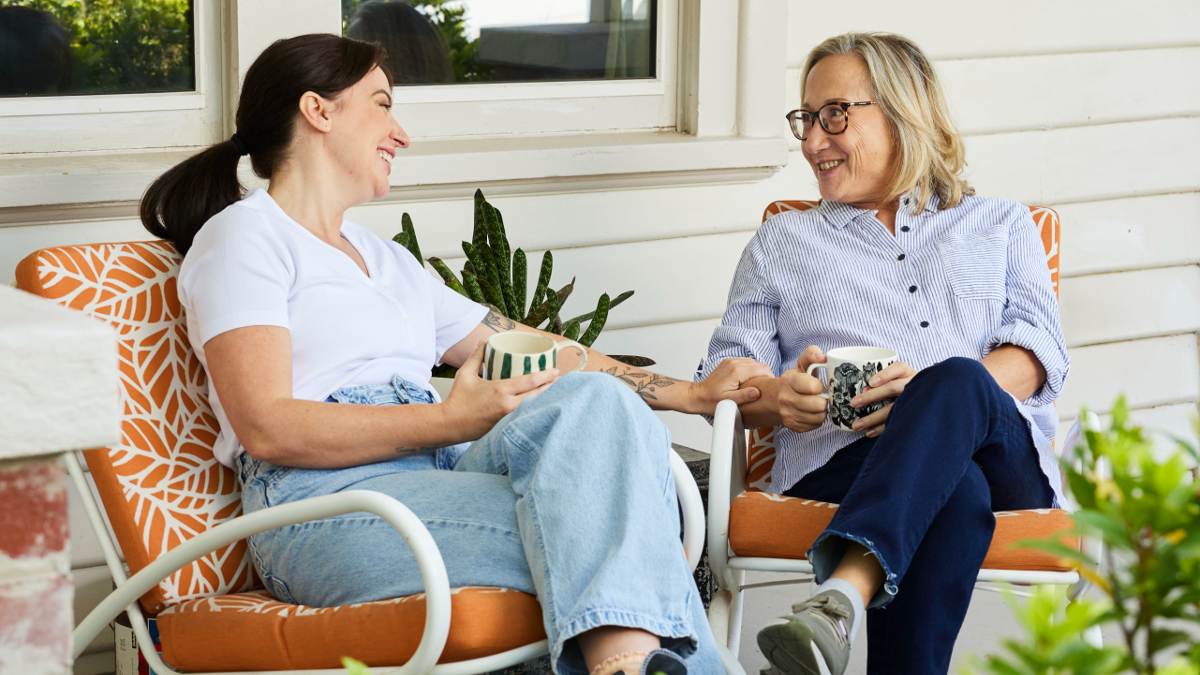
Meeting and making friends with your new neighbours is a must-do when moving regionally.
Tips for moving to regional Victoria
Do your property research
Spend time in the town you're considering before buying. Visit at different times of year to understand seasonal changes. A beachside town might be idyllic in summer, but quieter and windier in winter.
If possible, consider renting for six to twelve months before purchasing a home. This gives you time to understand the community, test the commute and be sure it's the right move.
More: Open house inspection tips for buyers and sellers
Understand the property market
Regional property markets can behave differently to metropolitan ones. Some towns are experiencing rapid growth, while others may remain slower.
Research price trends, vacancy rates and infrastructure projects that could impact long-term value. Engage with local real estate agents to learn more and find out about properties that may not be listed publicly.
Get a building inspection before you buy
It's crucial to get your potential new home professionally inspected before purchase. It pays to be informed so you can make better choices about your future home.
Choose a reliable, qualified inspector to provide you with a building and pest inspection to identify signs of rust, rot, excessive moisture and mould, poor structural integrity or pest activity.
RACV Members save on Rapid Building Inspections, which services major regional areas such as Greater Geelong, Greater Bendigo and Ballarat.
Consider how to protect your property and deter burglars
The notion that regional and rural living allows you to leave your doors unlocked isn't supported by current crime statistics.
Crime Statistics Agency data for the year ending June 2025 shows the Victorian LGAs with high burglary offences included Mildura, Mornington Peninsula, Greater Shepparton, Ballarat and Campaspe.
If you're intending to buy or rent a property in regional Victoria, check the quality of the door locks, window locks and garage locks, and consider if these will need to be replaced. Other potential security measures include alarm systems, professional monitoring and security cameras.
Read more: What burglars want to steal most from you
Meet your neighbours
If you can, meet your prospective neighbours before you buy. Regional communities are often more close-knit than metropolitan ones, so it's worthwhile to make friends with your neighbours.
"Join your local Neighbourhood Watch community as soon as you're able," advises Neighbourhood Watch CEO Bambi Gordon. "Neighbourhood Watch members tend to look out for other residents, and are often more informed about local crime trends and safety issues."
More: The latest home safety and theft prevention tips
Check internet and mobile coverage
Make sure your chosen area has reliable internet and mobile coverage, especially if you plan to work remotely. Some parts of Victoria still struggle with connectivity. This can make or break a regional move for families, digital workers or people who plan to stream and download a lot.
Weigh up the benefits of going electric
Regional movers may want to consider installing solar, both to save on bills and even to go off grid. Solstice Energy is ceasing gas supply to 10 regional towns by the end of 2026: Robinvale, Swan Hill, Kerang, Nathalia, Marong, Maldon, Heathcote, Terang, Lakes Entrance and Orbost. Anyone moving to these areas will need to think about switching to electricity or bottled gas.
Read more: How to plan for your home to go all-electric
The information provided is general advice only. Before making any decisions please consider your own circumstances and the Product Disclosure Statement and Target Market Determinations. For copies, visit racv.com.au. As distributor, RACV Insurance Services Pty Ltd AFS Licence No. 230039 receives commission for each policy sold or renewed. Product(s) issued by Insurance Manufacturers of Australia Pty Ltd ABN 93 004 208 084 AFS Licence No. 227678.
*RACV Trades is a trading name of RACV's trade partner, Club Home Response Pty Ltd (Victorian registered domestic building practitioner number CDB-U 100178). All works are performed or arranged by Club Home Response Ltd. trading as RACV Trades. Read the Terms and Conditions.
^RACV Emergency Home Assist is an emergency home service product, separate to insurance, that is provided by Royal Automobile Club of Victoria (RACV) Ltd and not RACV Insurance Services Pty Ltd. It is a fast response service for common plumbing, electrical and locksmith emergencies, all for one annual fee. Up to 1 hour of labour, including minor parts and materials, is used to repair or make your home safe. Emergency Home Assist does not insure you against the costs of a home emergency and is not a home insurance product. Call outs are unlimited, subject to the fair use policy. Refer to the RACV Emergency Home Assist Terms and Conditions for more details.


